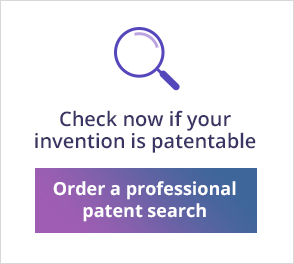Getting a patent on your invention can be a complex, expensive and long process. Whether you are an inventor or an entrepreneur building a startup considering how to get a patent in order to protect your idea, or a company manager trying to build an IP portfolio based on your firm’s technology, Here are answers for some basic questions that can help you in getting your idea/ invention become a patent.
1. Can you get a patent on an idea?
Yes, you don’t have to develop, manufacture or build a tangible physical working product in order to get a patent, but simply give a full detailed technical description. Many granted patents don’t develop into actual products, but still have economic, commercial and legal value.
3. What makes an invention patentable?
Patents laws differ from country to country but in most cases there are few terms and conditions that if met make an invention patentable:
- Novelty – The invention must be completely and utterly new and unknown before you file the patent application. This condition is universal and comprehensive – any kind of publication (patent or other), anywhere in the world, by anyone (including yourself) is considered prior art that prevents you from getting a patent.
- Inventive step (also known as Non obviousness) – There must be a significant difference between your invention and what is already known to persons skilled in the relevant technological field. For example putting two or more well known technologies in one device may not necessarily make the invention patentable.
- Industrial Utility and applicability – The invention can be produced, manufactured, utilized etc. in the relevant industries.
4. Does my invention exist, and if so how can it affect my chances of getting a patent?
Since one of the basic conditions to get a patent is novelty, it is important to conduct a patent search before rushing to draw and file a patent application. Because patent informatics is a very complex field and a large portion of relevant patent data can be found only in paid dedicated search engines, It is advisable to conduct a self research and then turn to a professional patent search service.
If the search yields findings (known as “prior art”) that are identical or very similar to your idea (patents, applications, products, articles etc.), it is advisable to consult with a patent professional regarding your chances to get a patent in view of that prior art. At that point you will have to decide whether to continue as planned or go back to the drawing board and make significant changes to your idea/ invention.
5. What are the implications of finding enforced patents identical or similar to your idea?
In many cases a patent search report will disclose that there are patents or patent applications under examination, identical or similar to your idea. In case you are interested in developing your idea into a product and selling it (or in a case of existing product you want to import and sell), it is very important to first conduct a freedom to operate search, in order to establish that there are no enforced patents that might prevent you from doing so in the markets you want to operate in.
6. How long does it take to patent an invention?
It depends, usually the first steps of searching, researching, drafting and filings takes months. The examination process can take anywhere between a few months to a few years.
7. What is the scope of protection that a patent will give you?
In most countries patent rights are given for 20 years (starting from the application date).
In that time any other entity beside the patent owner will be prohibited from using the invention in any way (produce, importing, sell, etc.) in the country territory.
As mentioned, the protection is territorial, there is no such thing as an “international patent”. In order to protect your invention you will need to file and get a patent in each and every country you want to do business in. There are international mechanisms (PCT) that help inventors, entrepreneurs and startups in that process, but even then – at the end of the line there is a national phase – a submission and examination in each relevant country.
8. How to patent an idea? – What are the basic stages?
These are the basic stages that most inventors/ startups usually go through on the way to get an idea patented:
- Self Search using open free source tools (google, google patents, espacenet etc.)
- Patentability search using a patent search company.
- Consulting an IP professional (IP consultant, patent agent/ attorney etc.), regarding if and how to proceed.
- Choosing the most suitable patent filing path (Provisional US application, PCT, national application etc.).
- Draft a patent application describing your invention and file it in the relevant countries (it is very important to use the services of a patent attorney/ agent).
- Patent examination- Many patent applications are not approved immediately. After a rejection the applicant may amend the claims and send his arguments for convincing the examiner that his invention is patentable (again it is highly recommended to use the services of a patent attorney/ agent, and professional search companies in case that changes are needed in the original application).
- Final approval or rejection.
- In case of approval – Pay maintenance fees for the duration of the “patent life” (20 years), in order to keep the patent valid.

